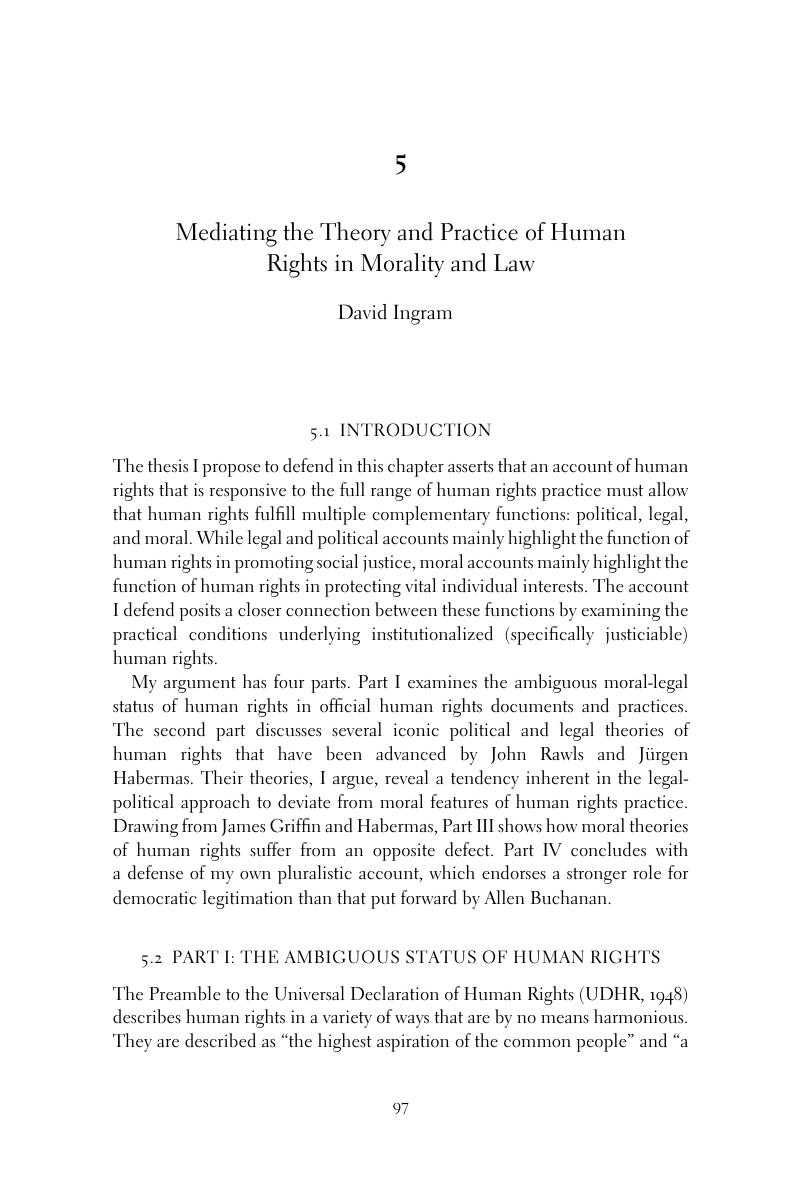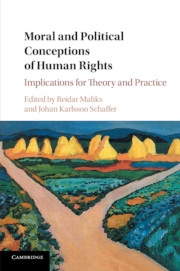Book contents
- Moral and Political Conceptions of Human Rights
- Moral and Political Conceptions of Human Rights
- Copyright page
- Contents
- Contributors
- Foreword
- Acknowledgments
- Expanding the Debate on Moral and Political Approaches to the Philosophy of Human Rights
- Part I
- 1 Theory, Politics, and Practice
- 2 The Point of the Practice of Human Rights
- 3 Rawls’s Relational Conception of Human Rights
- 4 Theories of Human Rights
- 5 Mediating the Theory and Practice of Human Rights in Morality and Law
- 6 Kantian Human Rights or How the Individual Has Come to Matter in International Law
- Part II
- Index
- References
5 - Mediating the Theory and Practice of Human Rights in Morality and Law
from Part I
Published online by Cambridge University Press: 27 July 2017
- Moral and Political Conceptions of Human Rights
- Moral and Political Conceptions of Human Rights
- Copyright page
- Contents
- Contributors
- Foreword
- Acknowledgments
- Expanding the Debate on Moral and Political Approaches to the Philosophy of Human Rights
- Part I
- 1 Theory, Politics, and Practice
- 2 The Point of the Practice of Human Rights
- 3 Rawls’s Relational Conception of Human Rights
- 4 Theories of Human Rights
- 5 Mediating the Theory and Practice of Human Rights in Morality and Law
- 6 Kantian Human Rights or How the Individual Has Come to Matter in International Law
- Part II
- Index
- References
Summary

- Type
- Chapter
- Information
- Moral and Political Conceptions of Human RightsImplications for Theory and Practice, pp. 97 - 124Publisher: Cambridge University PressPrint publication year: 2017



